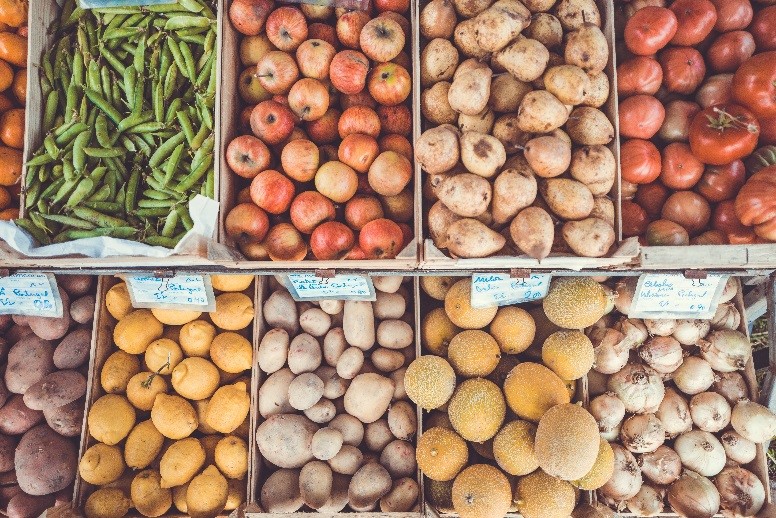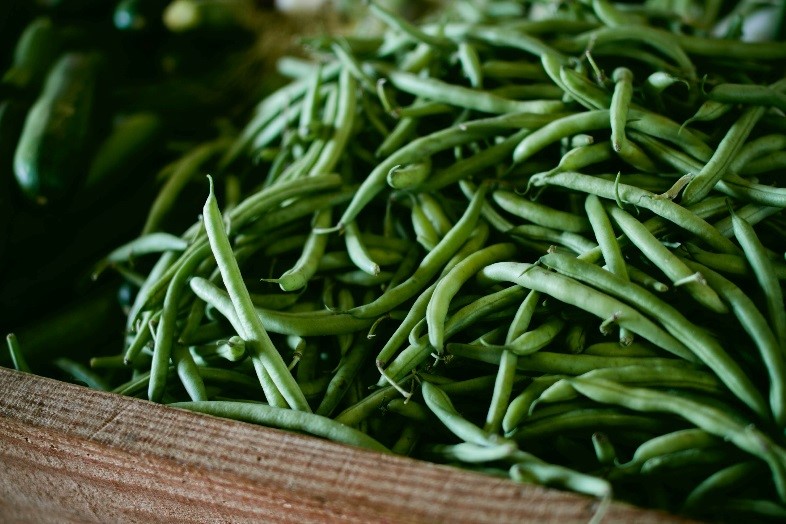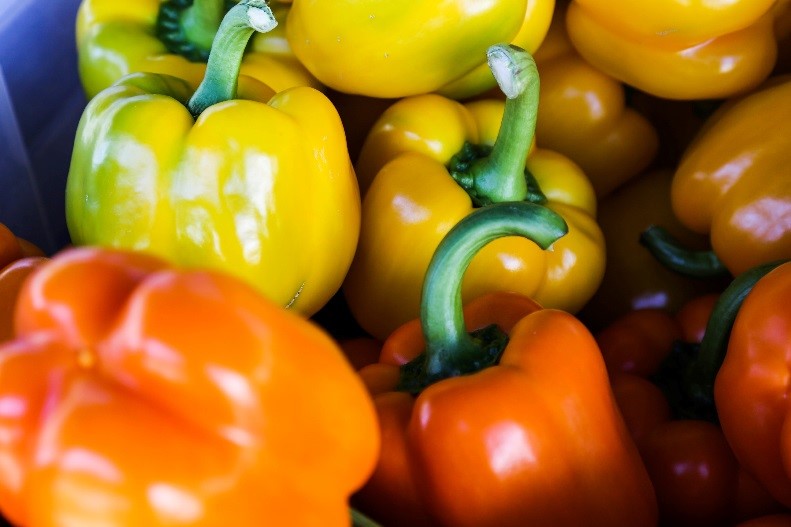For many eco-warriors, it's important to live the lifestyle of eco eating. Whether that's committing to Meatless Mondays or dabbling with pescatarianism, the importance of buying organic always rings through.
The organic label is a great way to ensure your food is coming from farms that do not use GMOs (genetically modified organisms) and harsh chemical pesticides and fertilizers. It is becoming increasingly common to see foods with this label not just at Whole Foods and natural food stores but at any grocery store in your area. You may already be buying organic food whenever possible, but is there an even better option?
The answer is a resounding yes.
While buying organic is important (and the best choice by far at the supermarket), buying locally grown food from farmer’s markets in your community can be a superior choice for a number of reasons. Here are our top 9! Provided that the farms you buy from locally minimize the use of harsh chemicals like pesticides and fertilizers and use sustainable practices, they will beat out grocery store organic every time. These farms may or may not be certified organic but by asking a few simple questions you can learn a lot about their commitment to sustainability. Read on and find out how frequenting your local farmer’s market can benefit the environment, the community, and your health.

- Flavor
Ethically speaking, we want a lot from our food but at the end of the day food needs to actually taste good. Once you do a side-by-side flavor comparison of a store-bought organic tomato and a juicy heirloom tomato from your local farmers’ market you may never step foot into a grocery store again. Shipping food across the country which often arrives in your kitchen four to seven days after it was picked can really affect flavor and freshness negatively. The produce at farmer’s markets is typically harvested the day before the market, giving you the freshest and tastiest fruits and vegetables possible. An added bonus, you’re more likely to get your picky kids to eat their vegetables when they are filled with flavor.
- Nutrition
Along the same lines, as flavor is lost throughout the shipping journey, nutrition can be lost too. Additionally, foods that are often shipped before they are ripe (like tomatoes) never develop their full nutrient content. The bright alluring colors you see of the vegetables arranged on farmer’s market stands are a great indicator of their high nutrient densities. Bolster your health and immunity as winter cold season wraps up with a rainbow of produce from your local farmer’s market!
- Supporting Local Farmers
Buying local supports the people who work hard in your community and are committed to sustainable agriculture. Organic food is undoubtedly grown with better practices than conventional agriculture, but the label does allow for farming on a more industrial scale which can include mono-cropping.
You can use your money to support smaller, diversified vegetable operations that foster soil health and encourage biodiversity on their land. The farmer’s market is a great opportunity to have a face-to-face conversation with your farmer and see what their practices are like, what inputs they use, and how they strategize with sustainability in mind. You may find that there are farmers in your area who are not certified organic but whose practices exceed the ecological requirements for the certification.

- Environmental Benefits
In addition to supporting your wonderful local farmers’ sustainable practices, cutting out shipping emissions is sure to help lower your carbon footprint. Produce in grocery stores is shipped an average of 1,500 miles to get to consumers whereas farmer’s market produce arrives from farms which are unlikely to be over 100 miles away. Furthermore, the packaging waste in grocery stores can be avoided at farmer’s markets, especially if you come prepared with reusable bags.
- Ethical eating
While organic certified brands have better animal welfare standards than their conventional counterparts, they are not perfect. The organic certification requires that animals have access to outdoor pasture but does not specify requirements for size or duration of that access. The Farmer’s market is a great place to find farmers raising animals for meat and eggs in ways that are both environmentally sustainable and ethically responsible. Ask farmers about the size of the pasture animals are contained in and how long they are given access to pasture. Questions about the animals’ diet and use of antibiotics will also give you an idea of their standard of care. If you truly want to see where animals are being raised, many farms participating in markets will be happy to have you drop by for a farm visit!
- Educational opportunities
It’s important to know where your food comes from, and the best source to learn from is the people who grow it! Don’t be afraid to ask questions about vegetable varieties you may not have seen before, growing methods, and how to use different vegetables. Farmers have pride in and are usually happy to talk about their work. Many farmer’s market stands also have literature and signage about topics ranging from seasonality to cooking and recipes. Use the farmer’s market as a classroom in your sustainable food education.

- Eating seasonally
Your local grocery stores purchase food from across the country so that people can eat tomatoes, zucchini, and peppers in the middle of winter when these foods are unable to be grown locally. While having access to these delicious foods year round seems great, there is a lot to be said for eating locally and seasonally. After being shipped long distances, these foods are never as flavorful or nutritious as they were when first picked. Eating seasonally gives you a chance to take a break from foods when they are out of season and then become excited when they are available in their best form. A seasonal diet also helps you branch out and try foods that are in season which you may not have previously considered.
- Diversify your diet
Farmer's markets offer a wealth of produce that you usually won’t find at grocery stores. From heirloom varieties to produce that doesn’t ship well or is regionally specific to your area, you will find new and interesting fruits and vegetables to try each week. Farmers often have suggestions for how to best use these foods that they will share with you. The internet is also a great resource to find recipes and nutritional information for these unique and exciting varieties.
- Have fun!
Aside from all its numerous benefits, the farmer’s market is simply a fun weekend activity! Especially with spring approaching, spending the day outdoors taking in the inviting sights and smells of the farmer’s market is an amazing way to spend time with friends and family. Find a farmer’s market in your area today and go above and beyond organic, you won’t want to go back!
Read about more eco eating tips, challenges, and fun facts at GreenAmerica.org/good-food.


